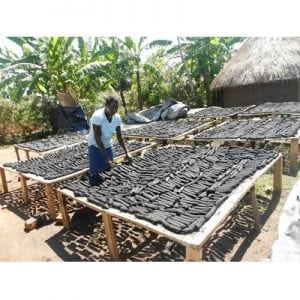
Agriculture
November 22, 2024
AEST Agricultural Waste Charcoal Briquettes
Read SolutionImplemented by
Appropriate Energy Saving Technologies Limited (AEST)
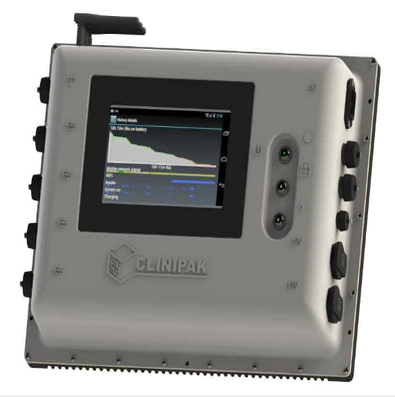
Updated on June 7, 2024
·Created on September 1, 2016
Vecna Cares CliniPAK 6.0 is a solar-powered server and power management system used for electronic health records in low resource environments.
Vecna Cares CliniPAK is a streamlined electronic medical record, data capture, and reporting system that allows users to register patients, capture key clinical and demographic data at the point of care, and manage patient flow. It is an mHealth reporting system that uniquely has hardware and software components to allow centralized offline data collection. The software component builds from the robust and open source standard Open Data Kit (ODK). The hardware component allows for several tablets to sync data wirelessly that can later be uploaded.
Target SDGs
SDG 3: Good Health and Well-Being
Market Suggested Retail Price
$3,500.00
Target Users (Target Impact Group)
Household, Small and Medium-sized Enterprises, Public Sector Agencies
Distributors / Implementing Organizations
International Rescue Committee (IRC), Special Olympics, Care 2 Communities, Americares, Human Development Innovation Fund (HDIF), Nigerian Ministry of Health, Kenyan Ministry of Health, Qualcomm Wireless Reach, InStrat Global Solution, Merck for Mothers
Competitive Landscape
Direct competitors include BRCK.
Countries
Haiti, Kenya, Liberia, Nigeria, Tanzania
Manufacturing/Building Method
The CliniPAK Node is manufactured in-house in Massachusetts (USA). The CliniPAK Node is manufactured in small batches.Interview with representative
Intellectural Property Type
Patent
User Provision Model
Vecna Cares partners with interested NGOs, government agencies, and nonprofit organizations to deploy the CliniPAK. Individuals interested in CliniPAK can email info@vecnacares.org for more information.
Distributions to Date Status
57 CliniPAK Node units have been distributed as of September 2016.Interview with representative Experts note that this is a relatively small number of distributed units which may be due to the age of the product (developed in 2009). Data has been collected for over 200,000 unique patient visits using CliniPAK. Interview with representative
Telecommunication service required
Ethernet, mobile internet, or Wi-Fi (for cloud hosted solutions)
Level of connection service needed
3G, 4G, or GSM
Additional features required
None
Device(s) required
Smart phone, tablet, or computer
Permanent network connectivity required (Y/N)
No (connectivity required to sync data on cloud or share data across local servers)
Two way communication (Y/N)
No
Usage rate (%)
Unknown
Literacy support (Y/N)
No
Languages available
English, French, Haitian Creole, Swahili
Operating system and version
Ubuntu 12.04, Centos 6, Android (for CliniPAK Lite)
Power requirements
Uninterrupted power supply
eHealth application
Electronic medical records, data collection and analytics, disease surveillance and reporting
Design Specifications
The CiniPAK system consists of the CliniPAK Node and CliniPAK software.
The CliniPAK Node allows providers to access and share patient information with built-in wifi/local area network (LAN). The data is collected and stored in a password-protected database on the CliniPAK Node.Interview with representative
The CliniPAK Node also has input/output ports including USB data, USB charging, and Ethernet. Data collected with CliniPAK can be shared and synchronized across other CliniPAK units using Ethernet or 3G network.The server is water and dust resistant and supports up to 100 Wi-Fi enabled devices. The CliniPAK emits a wifi network with a 50m radius, but access points can be added and powered from the CliniPAK to extend the network to approximately 75-100 meters.Interview with representative Multiple access points can be daisy chained together to create a larger network. The biggest factor that impacts the wifi range is the composition of walls and other structures.Interview with representative
CliniPAK requires a constant supply of power. CliniPAK can run on 110/240 AC, solar, or 12V DC power. CliniPAK hardware units are also equipped with USB and 12V ports to charge mobile devices, laptops, or power a light source. Additional materials that are required to use the CliniPAK Node include surge protector (if powering CliniPAK Node with AC power), switch power cord, power over Ethernet, power over Ethernet access point, Ethernet cable, USB stick, USB mouse, USB Keyboard, and USB Ethernet adaptor.
CliniPAK software enables data collection either through a local server with CliniPAK Node or centrally in a cloud. The CliniPAK system is designed so that can be integrated with Vecna Cares' customized software or another electronic medical records software such as OpenMRS or CommCare. CliniPAK software allows users to utilize CliniPAK's library of workflow modules or create their own. The software can be accessed through any browser enabled device on any operating system. CliniPAK cloud-based hosted solutions utilize a SAAS model to allow for total data and reporting access online. When connectivity is not available, the Android app can be used for offline data collection and synced with the cloud later.
Technical Support
Vecna Cares uses a train-the-trainer model of training to ensure sufficient local support for CliniPAK. This training model takes less than one week to complete. The cost of training varies depending on the type of training requested.Interview with representative Vecna Cares also has a network of country program managers to provide support.
Vecna Cares supports clients in monitoring ICT indicators to ensure local uptake of technology of the system. In addition, hardware, software, and data analysis support services can be tailored to each project.
Replacement Components
The CliniPAK Node is not comprised of customized parts so that replacement parts can be serviced locally. However, the system is designed to be rugged and therefore requires minimal servicing.Interview with representative
Lifecycle
The oldest CliniPAK Node units in the field are four years old and are still actively being used.Interview with representative
Manufacturer Specified Performance Parameters
CliniPAK relieves health workers of up to three days of tallying register entries.
Vetted Performance Status
In-house validation has been conducted by Vecna Cares to confirm that the CliniPAK Node is rugged. For example, software was uploaded to CliniPAK Node to ensure the hardware would not overheat. Vecna Cares is in the process of conducting additional controlled testing.Interview with representative Experts note that they would like to see further validation of the device's physical robustness. Vecna Cares reports a low failure rate in the field.Interview with representative Grant proposals to perform academic research to validate the CliniPAK system are pending.Interview with representative
Safety
N/A
Complementary Technical Systems
Unknown
Academic Research and References
Otu, A., Ebenso, B., Okuzu, O., and Osifo-Dawodu, E., 2016, Using a mHealth Tutorial Application to Change Knowledge and Attitude of Frontline Health Workers to Ebola Virus Disease in Nigeria: a Before-and-After Study, Human resources for health, 14(1), 5.
West, D. M., 2015, Using Mobile Technology to Improve Maternal Health and Fight Ebola: A Case Study of Mobile Innovation in Nigeria, Center for Technological Innovation at Brookings, 19, pp. 308-312.
“Hardware —.” n.d. VecnaCares. Accessed June 7, 2024. https://www.vecnacares.org/hardware
Time. n.d. “The First Attempt to Digitize Ebola Health Records.” Accessed June 7, 2024. https://time.com/3615990/ebola-electronic-health-records/
“New Technology to Improve Clinic Experience.” n.d. Care2communities.Org. Accessed June 7, 2024. https://care2communities.org/2014/05/21/new-technology-to-improve-clinic-experience/
“HDIF – Human Development Innovation Fund.” n.d. Hdif-Tz.Org. Accessed June 7, 2024. http://hdif-tz.org/
“Global MHealth Challenge: Make Sustainability Follow Success.” 2014. MobiHealthNews. March 28, 2014. https://www.mobihealthnews.com/news/global-mhealth-challenge-sustainability-follow-success-Kenya-Vecna
“MSD for Mothers.” n.d. MSD for Mothers. Accessed June 7, 2024. https://www.MSDformothers.com
“BRCK | Front Page.” n.d. Brck.Com. Accessed June 7, 2024. https://brck.com/front-page/
CommCare Homepage Loop.Original. 2020. https://www.dimagi.com/
“Goal 3.” n.d. Sdgs.Un.Org. Accessed June 7, 2024. https://sdgs.un.org/goals/goal3
“Hardware —.” n.d. VecnaCares. Accessed June 7, 2024. https://www.vecnacares.org/hardware
Compliance with regulations
CliniPAK supports integration with OpenMRS, ODK Collect, CommCare, DHIS2, and HMIS. Industry standard encryption via https is used when transmitting data from the tablets to the Node.Interview with representative
Evaluation methods
Vecna Cares requires pilot programs to demonstrate that certain critical metrics and milestones are met prior to scaling up the project. These metrics include reliable infrastructure, strong partnerships with local providers and government stakeholders, competence in the use of technology by healthcare workers and administrators, and reporting meeting defined expectations.

Agriculture
November 22, 2024
Implemented by
Appropriate Energy Saving Technologies Limited (AEST)
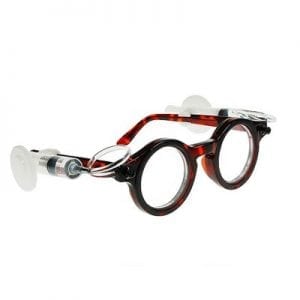
Agriculture
February 5, 2024
Implemented by
Centre for Vision in the Developing World
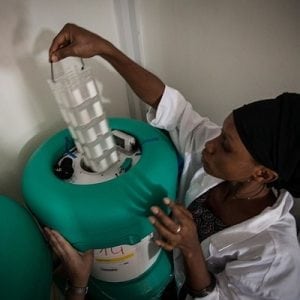
Agriculture
February 20, 2024
Implemented by
Intellectual Ventures Lab
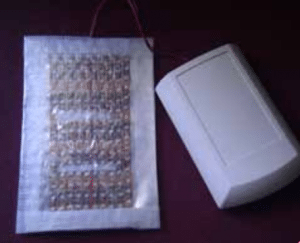
Agriculture
March 1, 2024
Implemented by
Infantrust Parenting Solutions
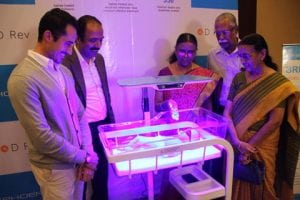
Agriculture
February 16, 2024
Implemented by
Equalize Health
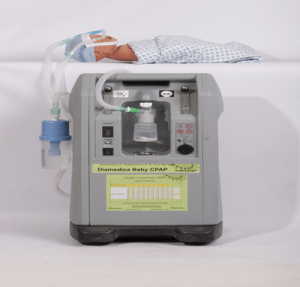
Agriculture
September 27, 2024
Implemented by
Diamedica
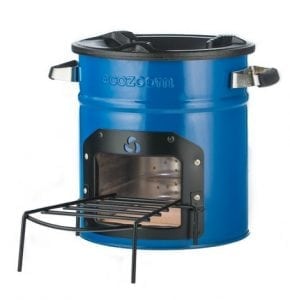
Agriculture
December 2, 2024
Implemented by
BioLite
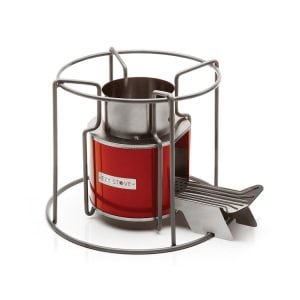
Agriculture
December 3, 2024
Implemented by
Veryday (McKinsey Design)
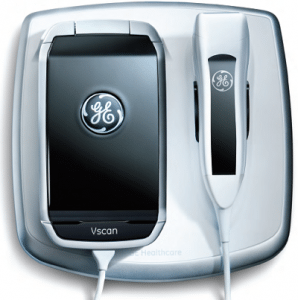
Agriculture
February 8, 2024
Implemented by
GE Healthcare
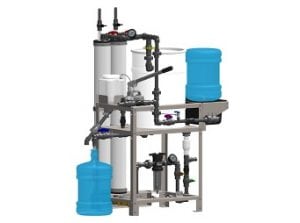
Agriculture
January 8, 2024
Implemented by
Healing Waters International
Have thoughts on how we can improve?
Give Us Feedback
Overall, this solution seems promising. The CliniPak is a reporting system that has hardware and software components. The software component builds from the industry standard Open Data Kit (ODK). The hardware component allows for several tablets to sync data that can later be uploaded. The inclusion of the software and hardware solutions is wise as the lack of connectivity at the point of collection of information can often be a bottleneck.
One of the key selling points of the node software is that it can be charged and then used offline. However I don’t get a sense of how long the battery lasts or the performance of the machinery. Also, the components of the node are supposedly easily sourced and replaced, but the are not as many details on this as I would like as maintenance will surely be an issue.
Unfortunately there is no literature on the adoption and use of CliniPak. This is likely due to the lack of time to gather these experiences.
The CliniPAK node offers the ability to set up a LAN network and for other devices to transfer data which can then be uploaded to a central database. The node requires a constant supply of energy which is obviously a limitation. I would like to see some description of the effective range and also validation of it’s robustness.
In addition, I would like to see some mention of encryption or security of data both while being stored and in transfer.
The CliniPak is an mHealth reporting system that uniquely has hardware and software components to allow mobile data colecetion in the absence of any connectivity infrastructure. The software component builds from the robust and open source standard Open Data Kit (ODK). The hardware component allows for several tablets to sync data wirelessly that can later be uploaded.
The CliniPak is an mHealth reporting system that uniquely has hardware and software components to allow centralised mobile data colelcetion in the absence of any connectivity infrastructure. The software component builds from the robust and open source standard Open Data Kit (ODK). The hardware component allows for several tablets to sync data wirelessly that can later be uploaded.
In addition, I would like to see some mention of encryption or security of data both while being stored and while being transmitted from handsets to the central node.
The CliniPAK node offers the ability to set up a LAN network and for other devices to transfer data which can then be uploaded to a central database. The node requires a constant supply of energy which is obviously a limitation. I would like to see some description of the effective range and also validation of it’s physical robustness.
In addition, I would like to see some mention of encryption or security of data both while being stored and while being transmitted from handsets to the central node.
The platform supports both ODK and OpenMRS which are both well trusted and robust open source software projects.
Unfortunately there is no literature on the adoption and use of CliniPak. This is likely due to the lack of time to gather these experiences.
Robert Hauck says:
All medical device manufacturers have the responsibility to support their products throughout their entire lifecycle. No mention of this requirement is made in the product specifications. Appropriate retirement and recycling in developing countries is required.
This product states that repair parts will be available to the customer but that on-site support will be provided to the customer by the manufacturer. This is not practical for an installed base of more than ~50 units. The global distribution to both Africa and India will require 24 x 7 staffing and when repair is required the unit will either need to be uninstalled and returned for repair or repaired on site. The size, weight and complexity of the installation of this type of product will require servicing on-site. Service training, staffing and instructions will be required. Sending out someone from the factory to support each product is not practical.
All medical device manufacturers must have the ability to collect customer complaints, evaluate them and address each of them. No mention of this regulatory requirement is made in the product specifications.
Complimentary technical support about attaching it to a car seems tangential. Could a solar still or other water collection tech be a better match?